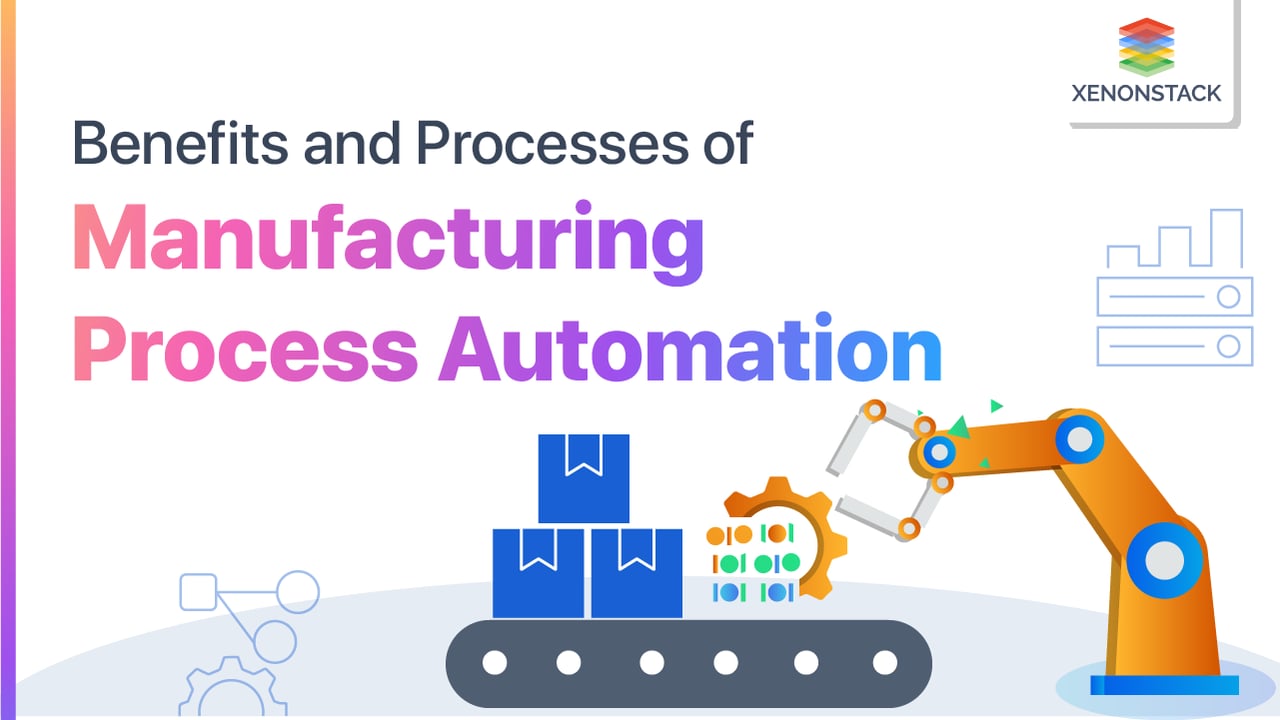
Introduction to Manufacturing Processes
The manufacturing sector is increasingly adopting the RPA. Robotics plays an essential role in manufacturing automation today. It is the process of using production management software or RPA tools to operate manufacturing when making a physical product with the help of chatbots and sensors. Companies in the manufacturing industries were the early adopters of automation, implementing robots and processing lines to perform daily production activities.
RPA is software that integrates with processes to automate specific tasks. It reduces the chances of error, saves time, and increases productivity. The vital role in manufacturing processes is played by automated data processing systems software tools, which provide crucial functionality during design processes, monitoring and control of manufacturing processes, quality control, reporting, etc.
RPA is the technology about business process automation where repetitive human mundane tasks are automated. Click to explore about our, 3 Best RPA Tools
What is Manufacturing Process Automation?
Manufacturing Process Automation uses robotic tools to operate a manufacturing process when making any physical product. Manufacturing robots automate repetitive tasks, reduce error rates and enable workers to focus on more productive work. The automation of manufacturing processes allowed traditional manufacturing processes to boost productivity. It uses automatic mainly equipment in manufacturing or other production processes.
It is the process that defines the use of control equipment to perform manufacturing operations on individual pieces or batches of products. Mainly in all Industries, it can be used in all manufacturing phases, from processing, inspection, testing, and assembly.
Processes of Manufacturing Process Automation
Chatbot automation in ERP systems allows workers to access the stored data or order lists by simply querying the bot. The bot provides data through multiple platforms and saves time for workers.
Food and Beverages Automated packing and distracted Packing is the essential task in any industry. RPA helps to streamline these processes to a great extent.
HR operations processes that can be simplified using RPA include employee relations, recruiting and hiring training and development. Click to explore about our, RPA in Human Resources Management
What are the benefits of Manufacturing Process Automation?
Automating the manufacturing process helps the business achieve high levels of productivity and efficiency while increasing product quality and profits. Automated manufacturing systems require no human participation to operate. These systems often perform the processing, assembling, inspection, or handling of all the materials used in the process.
Increased Workplace Safety
Transferring dangerous tasks to automated machines for team member safety can make the workplace safer. The automation process has made the workplace safer for workers.
Reduced Labor Cost
Investing in automation can replace manual efforts and reduce increasing labor costs in manufacturing industries.
Increased Labor Productivity
Automated systems can perform all tasks more efficiently and quickly than manual operations. It increases labor productivity and the total rate of production in manufacturing processes.
Reduced Manual Tasks
In manufacturing industries, automation can reduce many difficult operations that are repetitive and time-consuming for workers.
Accomplish Impossible Manual Tasks
A lot of manufacturing operations and processes are only possible with the involvement of machines. When such tasks are automated, it becomes easy for workers and organizations to handle them.
Enhanced Product Quality
Machines are always available 24/7 without taking any breaks. Performing automated operations with conformity and uniformity enhances product quality.
Low Costs
Spending one on machines reduces the cost of the ongoing Payments to the employees. It decreases the cost of the process.
Reduced Manufacturing Lead Time
Automation Processes help reduce the time from starting an order to product delivery.
Use Case of Manufacturing Process Automation
RPA implementation is in the form of a physical robot to perform actions, assembly, test and packaging tasks, etc. other back-office processes are:
- Inventory Management: Manufacturing industries have a lot of paperwork. RPA can automate emails, files, invoices, and other paperwork.
- Invoice Processing: Manually approving invoices takes a lot of time, starting with receiving an invoice and ending when payment is completed. RPA automates these tasks, such as extracting information, converting the extracted data into a structured form, Cross-checking duplicate data, and updating invoices automatically.
- Bill of Materials: RPA bot combined with OCR will extract the specific product information. It replaces the human steps required to generate a bill of materials.
- Customer Service/Support: Automating customer service with RPA provides good customer support by integrating with a chatbot. Support bots are available 365 days per year.
Conclusion
Nowadays, Industrial companies need manufacturing bots. Robotics plays an essential role in manufacturing automation today. Manufacturing robots automate repetitive, time-consuming tasks that require more human effort. The robots provide security to the workers by doing some complex tasks. Automation results in higher sales, better quality, improved productivity, a better bottom line due to higher efficiencies, and a better company image. Now companies that do not implement automation may find themselves lagging behind their competitors who have chosen to automate the processes in manufacturing. Automated tasks reduce the chances of error, so it’s time for the manufacturing Industries to adopt RPA across all operations.
- Discover here about RPA in Supply Chain Industry
- Click to read a Guide to Implement RPA on Cloud Architecture
.webp?width=1921&height=622&name=usecase-banner%20(1).webp)


